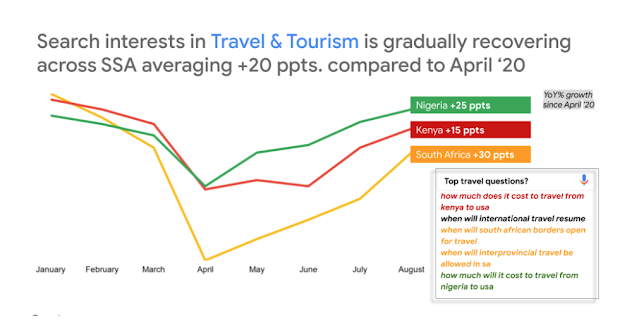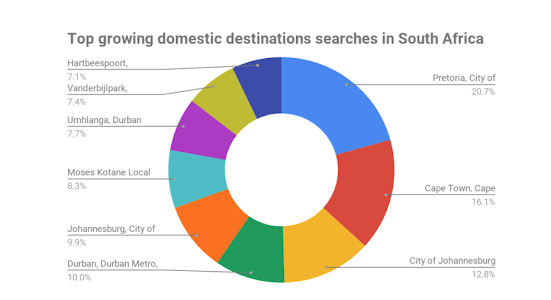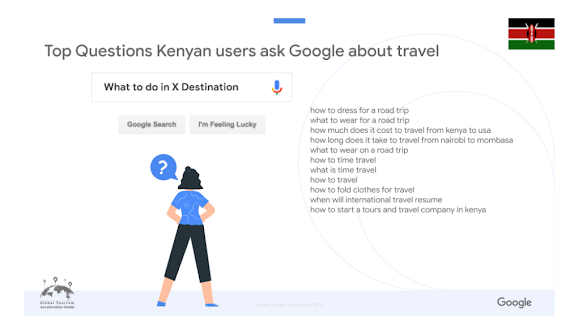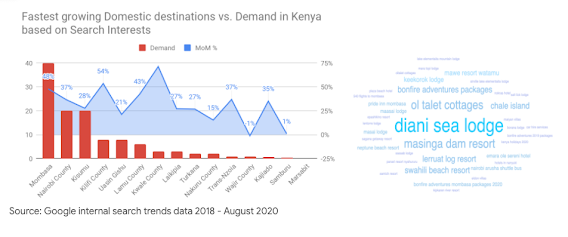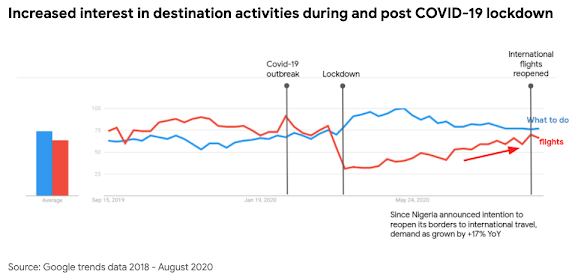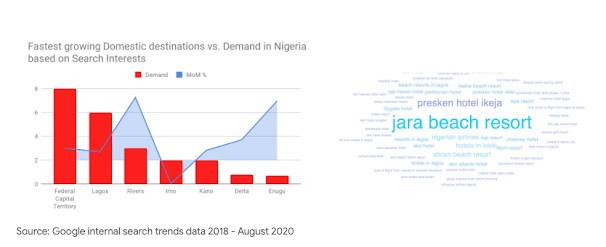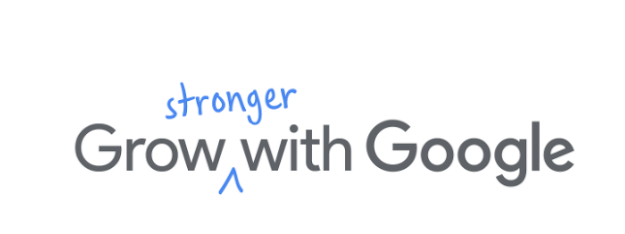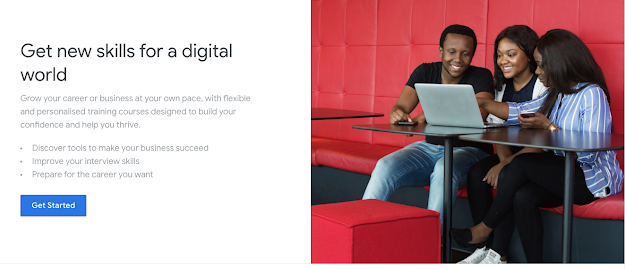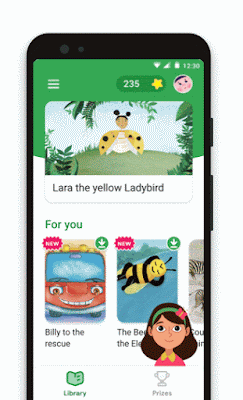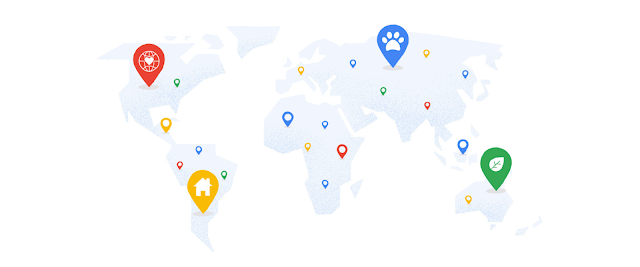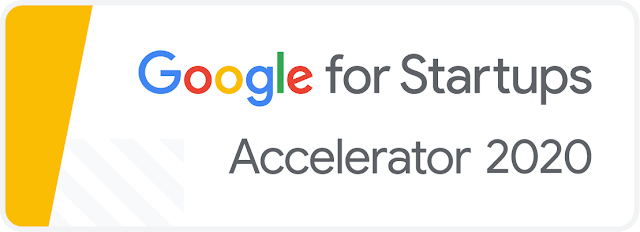Today, October 1st 2020 marks the 60th Independence Anniversary of Nigeria and the annual celebration shines light on what we are known for: our rich and diverse cultural heritage, spectacular nature, bustling cities and our welcoming spirit. Often referred to as the heartbeat of Africa, our population of more than 200 million people is putting the country on the world map through music, art, literature and a vibrant technology scene.
Today, we invite you to explore the true spirit and essence of Nigeria, from the historic, cultural and heritage sites to sun-kissed coastlines, beaches, breathtaking waterfalls, natural springs, the grandeur of festivals, wildlife and magnificent plateaus. Whether it’s your first encounter with Nigeria or you are rediscovering our heritage, we encourage you to virtually tour the country through the ‘Tour Nigeria’ collection with over 400 photographs, 12 online stories, 10 Street Views of iconic sites. And if you’re still aching for more, you should check out the YouTube travel recommendation series featuring some of the country’s top influencers. This is the first phase of a long-term partnership with Google Arts & Culture which aims to digitize, preserve and share Nigeria’s rich culture with Nigerians and the world. From the north, south, east and west, it is our goal to collaborate with Google Arts & Culture on using their technologies to document Nigeria’s past, present and future for generations to come.
The Nigerian Tourism Development Corporation (NTDC) has since 2017 designed programs to accelerate the growth of domestic tourism in Nigeria. As a vital frontier of economic development, we have supported initiatives promoting diverse indigenous cultural heritages and traditions to empower peace and development for different ethnic groups. As 2020 has posed several challenges for locals and global travellers alike, we are excited to announce a new and dedicated program with Google to enable the recovery and growth of the tourism industry in Nigeria - with a focus on exploring Nigeria for domestic travellers. The holistic program tagged 'Explore Nigeria' will include tourism-specific digital skills training, ongoing support for small businesses in Nigeria, and a new virtual collection by Google Arts & Culture called ‘Tour Nigeria’.
Today, we invite you to explore the true spirit and essence of Nigeria, from the historic, cultural and heritage sites to sun-kissed coastlines, beaches, breathtaking waterfalls, natural springs, the grandeur of festivals, wildlife and magnificent plateaus. Whether it’s your first encounter with Nigeria or you are rediscovering our heritage, we encourage you to virtually tour the country through the ‘Tour Nigeria’ collection with over 400 photographs, 12 online stories, 10 Street Views of iconic sites. And if you’re still aching for more, you should check out the YouTube travel recommendation series featuring some of the country’s top influencers. This is the first phase of a long-term partnership with Google Arts & Culture which aims to digitize, preserve and share Nigeria’s rich culture with Nigerians and the world. From the north, south, east and west, it is our goal to collaborate with Google Arts & Culture on using their technologies to document Nigeria’s past, present and future for generations to come.
From the comfort of your couch, I invite you to join me in getting the virtual celebrations started with these five experiences on Google Arts & Culture:
1. Explore Nigeria YouTube series
To help plan your next Nigerian adventure, we have invited , Bukola Wahab (Shawttynat), Funmi Oyatogun, Ibe Kenneth (MaziIbe_), Ibrahim Salawu (Unilag Olodo), Oluwatosin Ajibade (Olorisupergirl) and Pamilerin Adegoke (Uncle Pamilerin) and Yemisi Odusanya (Sisi Yemmie) to share their most memorable holiday and what not to miss. Let them guide you through what to see, taste, smell, feel and listen to.
2. Climb to the top of Mount Patti
With the help of Street View, you can now explore the lush green Mount Patti which looks over the confluence of the Rivers Niger and Benue. Start by making your way to the famous baobab tree which is known to possess mythical values. Continue to The Lugard Rest House which today is a mini museum of Nigeria’s colonial past. Finish off your tour at the iconic view point and take in its magnificence.
Image: Mount Patti, Adedotun Ajibade, from the collection of Tour Nigeria
3. Put your knowledge to the test
Did you know that Nigeria is the world’s most populous black nation, has the third biggest film industry, Africa’s oldest dye pit and is home to Afrobeat music? Step back in time to learn about Nigeria’s ancient kingdoms and colonial past by visiting ten sites with Street View including Lagos National Museum and Tinubu Square. Fast forward by exploring 15 facts you need to know about Nigeria and put your knowledge to the test.
Image: Kofar Mata dye pits, Adedotun Ajibade, from the collection of Tour Nigeria
4. Experience the most colourful festivals
Experience the true spirit of Nigeria’s people by virtually taking part of one of the many festivals celebrated throughout the year. Each of the more than 250 ethnic communities celebrate their culture through music, dancing, masquerades, competitions and traditions. We invite you to join thousands of fishermen competing to catch the largest fish at the Argundu festival, watch the spectacular Durbar horse parade in Kano and learn about Nigeria’s naval history at the 200-year old Yauri Rigata festival.
Image: Dancers at the Rigata Festival, from the collection of Tour Nigeria
5. Spot a butterfly and visit the natural wonders
From the north, south, east to the west, Nigeria has an exceptional biodiversity and boasts of an abundance of fauna and flora. Having one of the world’s largest diversity of butterflies, photographer Adedotun Ajibade invites you to join him in exploring the most colorful ones through this online exhibit. Ever wanted to visit the Awhum Caves of Enugu, the Farin Ruwa falls of Nasarawa, the Osun Osogbo sacred grove of Osun state, and the Wikki Warm spring of Bauchi staIf? Discover 14 spectacular natural wonders and be inspired to plan your next adventure. See you out there!
Image: Axiocerses harpas butterfly, Adedotun Ajibade, from the collection of Tour Nigeria
Curious to see more? Check out g.co/explorenigeria, download the free Google Arts & Culture app for free Google Arts & Culture app for Android or iOS.
Posted by Folorunsho Coker, Director General, Nigerian Tourism Development Corporation.




